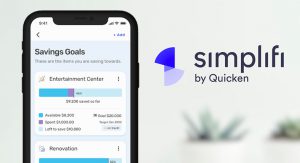Finances 101: Tips for Opening a Savings Account
Thinking about opening a savings account? That’s a fantastic step for your finances, whether you’re planning ahead for special purchases or just keeping the future in mind.
Use these 14 tips to find your perfect match and get the most out of your new account.
See how Quicken helps you save more money.
Continue →
1. What are the benefits of a savings account?
A savings account isn’t just a place to stash money—it’s a tool that helps you:
- Build an emergency fund: Be prepared for unexpected expenses.
- Earn interest: Watch your money grow over time.
- Organize your finances: Separate your spending money from your savings.
By keeping your checking and savings accounts separate, you can track your spending better and stay on top of your financial goals.
2. How do I choose the right type of savings account?
Not all savings accounts are created equal. Consider what suits your needs:
- Traditional savings accounts: Easy access but may have lower interest rates.
- High-yield savings accounts: Offer better interest rates to grow your money faster.
- Online savings accounts: Often have higher interest rates and lower fees since they save on overhead costs.
Think about your goals and pick an account that aligns with them.
3. What are the options for high-yield savings accounts?
Maximize your savings potential:
- High-yield savings accounts: Savings accounts with a higher interest rate than average, often because they’re digital only or come with various restrictions
- Money market accounts: May offer higher interest rates and check-writing privileges.
- Shop around: Don’t settle for the first offer—compare different banks and accounts.
The right account can make a big difference in how quickly your savings grow.
4. Should I compare interest rates and fees for savings accounts?
Yes. Interest rates and fees can significantly impact your savings:
- Compare interest rates: Even a small difference can add up over time.
- Watch out for fees:
- Maintenance fees: Monthly charges just for having the account.
- Minimum balance fees: Fees if your balance drops too low.
- Withdrawal fees: Charges for making too many withdrawals.
Aim for an account with a high interest rate and low or no fees to maximize your savings.
5. What account features should I look for in a savings account?
Make sure your savings account has features that make saving easy:
- Mobile banking: Check your balance and transfer money from your phone.
- Online transfers: Link to your checking account for quick transfers.
- Automatic deposits: Set up regular transfers to your savings.
- Convenient ATM access: Avoid fees by using your bank’s ATMs.
These features save you time and help you manage your money effortlessly.
See how Quicken helps you track your savings.
Continue →
6. Does it matter if my bank is FDIC insured?
Yes. Safety first! Verify that the bank is insured by the Federal Deposit Insurance Corporation (FDIC). This means your money (up to $250,000 per account category) is protected if the bank fails. It’s peace of mind knowing your savings are secure.
7. What do I need to open a savings account?
Before you apply, have these documents ready:
- Valid ID: Driver’s license or passport.
- Social Security number: For identification purposes.
- Proof of address: Utility bill or lease agreement.
Having everything available makes the application process smooth and quick.
8. Should I open an individual or joint savings account?
Think about who will access the account:
- Individual account: Only you can deposit and withdraw money.
- Joint account: Shared access with someone else, like a spouse or family member.
Choose what works best for your situation and financial goals.
9. Should I consider a Certificate of Deposit (CD) instead of a savings account?
If you’re okay with not touching your money for a while, CDs might be a good option:
- Higher interest rates: Often more than regular savings accounts.
- Fixed term: Money is locked in for a set period (e.g., 6 months, 1 year).
- Early withdrawal penalties: Be sure you won’t need the money before it matures.
CDs can boost your savings if you’re comfortable with the commitment.
10. How can I track and manage my savings?
Stay on track with your savings goals:
- Set clear goals: Know what you’re saving for, like a vacation or a down payment.
- Use automatic transfers: Make saving effortless by setting up regular deposits.
- Monitor your account: Keep an eye on your balance and interest earnings.
- Adjust as needed: Life changes, and so might your goals—adjust your plan accordingly.
Effective management helps your savings grow steadily. Start with Quicken Simplifi.
11. What should I watch out for when opening a savings account?
Opening a savings account can come with a few bumps:
- Minimum deposit requirements: Some accounts need a certain amount to open.
- Understanding terms and conditions: Take time to read the fine print.
- Meeting identification requirements: Ensure you have all necessary documents.
Being prepared helps you avoid surprises and choose the best account for you.
12. What financial planning resources are available?
Don’t go it alone—use available resources:
- Financial advisors: Get personalized advice for your situation.
- Online tools and apps: Help with budgeting and tracking your savings.
- Educational materials: Learn more about managing your finances effectively.
These tools can empower you to make informed decisions.
13. Why would I choose an in-person or an online bank?
Think about how you like to bank:
- In-person banking: Prefer face-to-face interactions? A traditional bank might be best.
- Online banking: Comfortable with digital? Online banks often offer better rates.
- Mobile access: Ensure the bank has a good app for on-the-go management.
Your comfort and convenience are important in choosing the right bank.
14. How can I protect my savings account?
Keep your savings safe:
- Set up account alerts: Get notified of any unusual activity.
- Use strong passwords: Protect your online banking access.
- Be cautious with information: Never share your account details unnecessarily.
Security measures help safeguard your hard-earned money.
Opening a savings account is an exciting step toward achieving your financial goals. By considering these tips and choosing the right account for your needs, you’ll be well on your way to a brighter financial future. Happy saving!
See how Quicken helps you reach your financial goals.
Continue →
Quicken has made the material on this blog available for informational purposes only. Use of this website constitutes agreement to our Terms of Use and Privacy Policy. Quicken does not offer advisory or brokerage services, does not recommend the purchase or sale of any particular securities or other investments, and does not offer tax advice. For any such advice, please consult a professional.
About the Author
Jason Weiland
Writer, founder of Singularity Management Group, LLC, and advocate for coloring outside the lines, Jason Weiland thrives where business meets technicolor living. He loves challenging the idea of ‘normal’ and expanding our ability to express our authentic selves.
Disrupting unforgiving landscapes of tech bros and Ivy League entitlements wherever he finds them, Jason envisions a world in which business is a place for everyone — where different is good, and alternative equals remarkable.
If you’re looking to break free from imbalance, embrace innovation, and explore professional behaviors that promote mental health and wellness, he’d love to chat.



